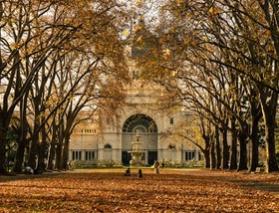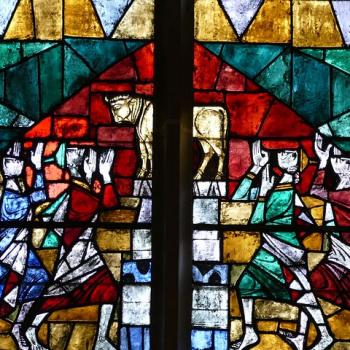Gerald May, the gifted psychiatrist, theologian, philosopher, and mystic, said that our true identity, our reason for being, was to be found in our deeply human desire for Love. As we grow up and become responsible adults in our culture, we are conditioned to believe that Efficiency is more important than Love. But Efficiency, he insisted, can only serve as the How of life. Love, he declared, was the Why of life. Efficiency exists only to serve Love. If ever we descend into serving greater and greater Efficiency, surely we will have lost everything.
I imagine Gerald May would find our current world quite firmly seduced by a cacophony of Efficiencies. And all talk of Love is left to romantics, poets, and fools.
Sabbath time allows for resting in what is, a practice we may call contemplation. Manjusrimitra, an ancient Tibetan saint, called this contemplation a "pure and total presence." Gerald May agreed, claiming that we try to understand our world, and our lives within it, through comprehension. Comprehension brings with it a fragrance of work, of laborious figuring, of working out the solution to a problem. Sabbath time, on the other hand, grants us an inner spaciousness of Love, in which we become opened and receptive, able to learn about ourselves and our world through apprehension. In this, we are as vessels into which the world is poured, filled to overflowing by spirit and grace, by Life, and by Love.
Make no mistake: There is much work to be done in the world. There are children to be raised, hungry to be fed, sick to be healed, shelter to be built. Six days shall we labor. We must render unto Caesar what is Caesar's.
But if we are bold and brave and clear, if we put down the shovel and hoe, the gun and spear, the phone and the automobile, and allow ourselves to be taken, and stopped, and rested, we render unto God what is God's.
Which means making Time for Life, and that abundantly. And to remember who we are, and more crucial to our deepening sense of meaning, a Time for remembering why we are.
We are, of course, for Love.
At the end of Shabbas, in the ritual of Havdallah, a cup of spices is passed from hand to hand, nose to nose, so the fragrance of Sabbath might remain with us a while longer, so we may retain some visceral memory of rest and sensual delight, so that even Love may stay close, even as we take up again the plow and the scythe. To do what must be done, in its time, in its season.
I cannot imagine how we will grow and flourish as a people without such practices. At our best, we can become Sabbath for one another, become that emptiness, become that vessel into which Life is poured, so that our loved ones, the lost and sorrowful, may find rest in us. As Jesus said, Whenever two or more are gathered, there am I in the midst of you. Not fixing, not harming, not acting.
Quietly empty, we become Sabbath, where the sorrows of the world are safely and gently dissolved into the unfathomable immensity of rest, and silence.
Given the world we have made, I feel called to be of real service to some crucial, collective confession of our nearly universal sense of overwhelming defeat. We have lost so much hope of finding any reliable permission anywhere — in the world, in ourselves — to safely claim for ourselves the fruitful, natural, life-giving rhythmicity of work and rest, of Efficiency and Love. A rhythmicity absolutely required to support anything resembling a Slower Life.
To live in Time as a refuge, a sanctuary. To find sacred beauty and comfort in an astonishingly useless season, to drop, slowly, as a pebble in a forest pool, into some peaceful settling in, at rest in a quiet hammock of gentle, easy days.
Time. For every purpose under heaven.




